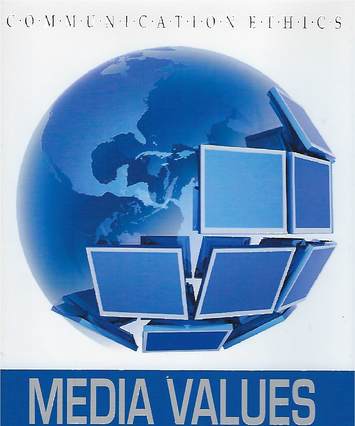Pope John Paul II has spoken out strongly about the special responsibility of the media.
With the explosion of information technology, he says, the possibility of communication between individuals and groups in every part of the world has never been greater. Yet the forces which can lead to better communication can also lead to increasing self-centredness and alienation. It is a time of threat and of promise.
The Pope believes that the Church's 'culture of remembrance' can save the media culture of transitory news from becoming a forgetfulness which corrodes hope; that its culture of wisdom can save the media culture of information from becoming a meaningless accumulation of facts; and that its culture of joy can save the media culture of entertainment from becoming a soulless flight from truth and responsibility. He is calling for closer and deeper cooperation in a spirit of friendship that can help both the Church and the media to serve the men and women of our time in their search for meaning and fulfilment.
David Aikman, a former senior foreign correspondent for Time magazine, has written of the Pope in his book, Great Souls, as 'asserting without qualification the absolute objectivity of moral values and of the inherent dignity of the human condition'.
Aikman, now a Senior Fellow at the Ethics and Public Policy Center in Washington, DC, is concerned with how one's faith affects one's journalism. He is hosting a conference in Chichester, UK, in August entitled 'The call to truth&emdash;being a Christian in journalism today'. He has established a support organization for Christians in the media called Gegrapha (the New Testament Greek for the words of Pontius Pilate, 'What I have written, I have written.') It has three goals: to build a global fellowship among Christians in journalism, supporting those already in it and encouraging others to enter it; to model Christian standards of excellence and personal ethics within the profession of journalism; and to be channels of God's grace and truth within the profession.
He says that in his 28-year career as a journalist, 23 with Time in about 55 countries, he met fellow journalists who were Christian believers from all over the world. 'When several of us expressed delight that we had so much in common - as practitioners of a wonderful occupation and as members of churches that are often a little suspicious of journalism - we decided we wanted to stay in touch.'
Two other media personalities concerned about their responsibility as people of faith, Bill Porter and Bernard Margueritte, of the (ICF), met the Pope in Rome recently. They had been inspired, they told him, by his message for the media, in particular his reference to their special responsibility to witness to the truth about life, about human dignity and about the true meaning of our freedom and mutual interdependence. They spoke of the ICF's commitment to moral and human values and of its determination to work with him to give the men and women of the media a constructive purpose in this crisis-ridden and unfulfilled age.
Margueritte, who has represented French papers in Poland for many years, outlined in Polish to the Pope the ideas and work of the Forum. When the Pope was told that many media people linked to the Forum were men and women of faith, and of different faiths, he nodded and said, 'That is very good indeed.' He also expressed approval of Margueritte's view that the media ought to be a service to the public for democracy and that the crisis in the media was a threat to democracy itself. At the end of the meeting the Pope said, 'My blessings for your activity.'
English



